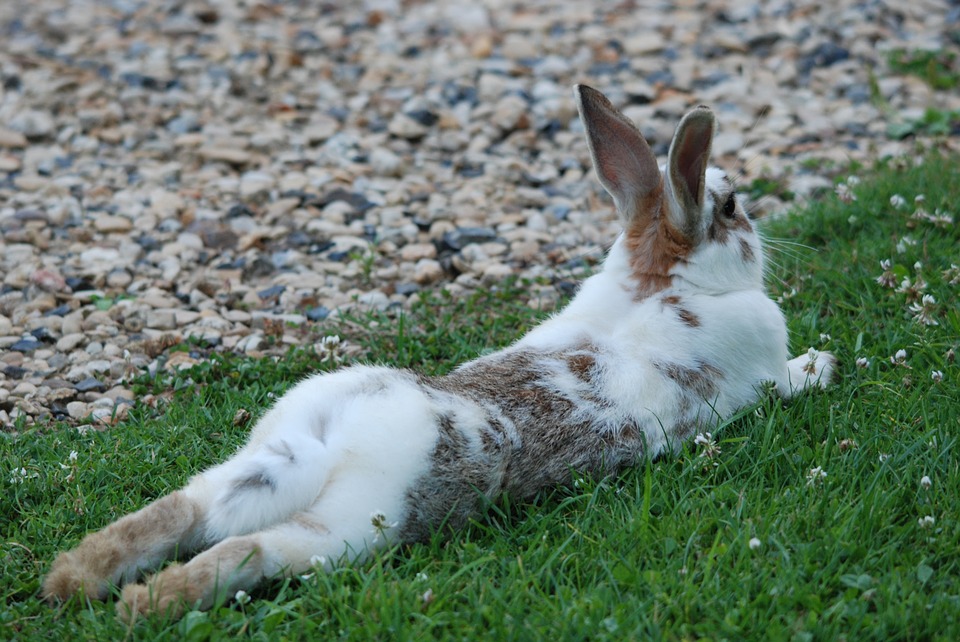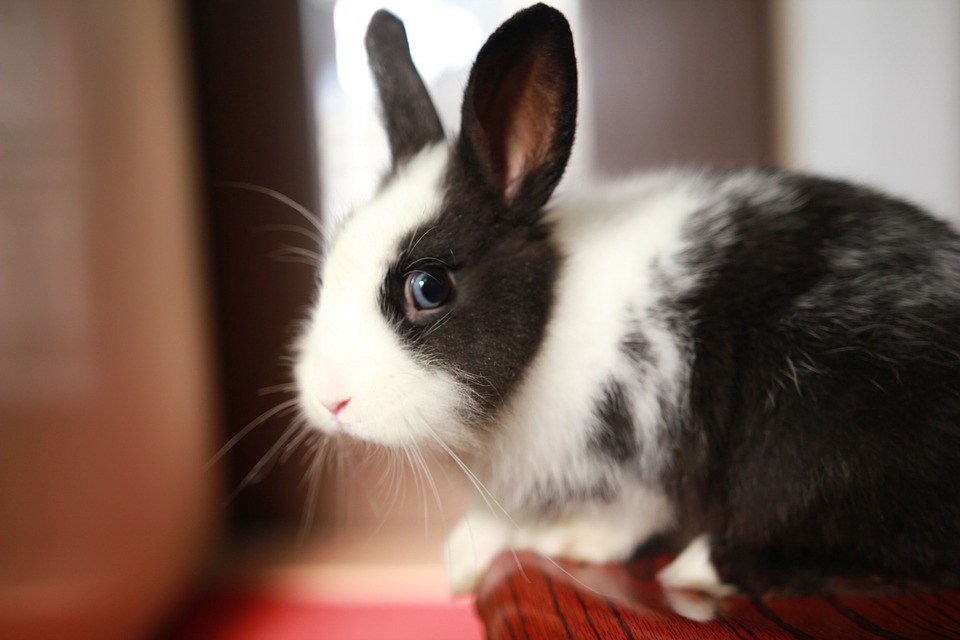This article dives into the complexities of rabbit nutrition, addressing the common question of whether cherries are safe for these adorable herbivores. We'll explore the nutritional makeup of cherries, unveil the potential risks they pose to rabbits, and provide a comprehensive guide to other fruits and vegetables suitable for your furry friend. We will also address frequent queries concerning rabbit diets, empowering you to craft a healthy and balanced meal plan for your pet.
Part 1: Unveiling the Nutritional Content of Cherries

1.1. A Detailed Look at Cherry Composition
Cherries are renowned for their vibrant color and sweet taste. But beyond their appeal, they hold a treasure trove of vitamins, minerals, and antioxidants:
- Vitamin C: This potent antioxidant bolsters the immune system, protecting against infections and promoting overall health.
- Potassium: Essential for maintaining healthy blood pressure and ensuring proper muscle function, potassium plays a crucial role in regulating fluid balance.
- Dietary Fibre: This essential nutrient aids digestion, promotes a feeling of fullness, and helps regulate blood sugar levels.
- Antioxidants: These potent compounds protect cells from damage caused by free radicals, which contribute to aging and disease.
- Other Beneficial Compounds: Cherries also contain flavonoids, anthocyanins, and other beneficial compounds with potential health benefits.
1.2. The Potential Advantages for Rabbits
While not a central component of a rabbit's diet, cherries can offer some benefits when consumed in strict moderation:
- Enhanced Fibre Intake: Cherries can contribute to a healthy digestive system, as fibre plays a vital role in promoting regular bowel movements.
- Antioxidant Support: The antioxidants in cherries may offer some protective benefits against cell damage and contribute to overall health.
- Enrichment Treats: A small amount of cherry can provide a delightful treat and mental stimulation for your rabbit, offering a change in their usual diet.
Part 2: Delving into the Risks of Cherries for Rabbits

2.1. The Sugar Content: A Sweet But Dangerous Threat
Cherries are known for their sweetness, but this can pose a significant risk to rabbits. High sugar content can lead to:
- Digestive Upset: Sudden spikes in sugar levels can disrupt the delicate balance of a rabbit's digestive system, causing diarrhoea, gas, and discomfort.
- Weight Gain: Excess sugar can contribute to weight gain, putting rabbits at risk for obesity and related health problems such as heart disease, diabetes, and joint issues.
2.2. The Cyanide Factor: A Hidden Danger
The pits and leaves of cherries contain a compound called cyanide, which is highly toxic to rabbits. Even small amounts can cause:
- Respiratory Distress: Cyanide interferes with the body's ability to use oxygen, leading to shortness of breath, rapid breathing, and even death.
- Cardiovascular Issues: Cyanide can also affect the heart, causing heart palpitations, irregular heartbeat, and potentially cardiac arrest.
2.3. The Digestive Challenge: A Potential Cause for Concern
The high fibre content in cherries, while beneficial in moderation, can also pose digestive challenges for rabbits:
- Gastrointestinal Issues: Rabbits have a sensitive digestive system, and excessive fibre intake can lead to diarrhoea, constipation, and other digestive problems.
Part 3: Navigating the Safe Fruit and Vegetable Options for Rabbits
3.1. A Fruit Basket of Delightful Choices
While cherries are generally off the menu, a variety of other fruits can be offered in moderation:
- Apples (without seeds): A good source of fibre and vitamin C, but choose varieties that are not overly sweet.
- Bananas (in very small amounts): A good source of potassium and fibre, but their high sugar content means moderation is key.
- Berries (strawberries, blueberries, raspberries): Rich in antioxidants and fibre, these little gems provide a delicious and nutritious treat.
- Mango (in small amounts): A source of vitamin A and C, but high in sugar, so offer sparingly.
- Melon (watermelon, cantaloupe): Hydrating and a source of vitamins A and C, but only offer small portions.
3.2. A Vegetable Garden of Nutritional Treasures
Vegetables should form the cornerstone of your rabbit's diet. Here are some safe and nutritious options:
- Broccoli: A good source of vitamin C and fibre, broccoli can be a healthy treat for your rabbit.
- Carrots (in moderation): Rich in vitamin A and fibre, but their high sugar content warrants moderation.
- Celery: Low in calories and a good source of fibre, celery provides a refreshing and nutritious snack.
- Cucumber: Hydrating and low in calories, cucumber is a great way to help your rabbit stay hydrated.
- Lettuce (romaine, red leaf, or green leaf): A good source of vitamin K and fibre, lettuce provides a tasty and nutritious treat.
- Spinach (in moderation): Rich in vitamin K and iron, but spinach should be given in moderation due to its high oxalic acid content.
- Sweet potato (cooked): A source of vitamin A and fibre, sweet potato can be a healthy addition to your rabbit's diet.
Part 4: Building a Balanced Diet for Your Rabbit
4.1. The Importance of Hay: The Foundation of a Healthy Diet
Hay should be the core of your rabbit's diet, providing essential fibre and nutrients:
- Timothy Hay: A popular choice, Timothy hay is high in fibre and low in calories, making it ideal for adult rabbits.
- Oat Hay: Similar to Timothy hay but slightly higher in calories, oat hay can be a good option for rabbits who need a bit more energy.
- Alfalfa Hay (for younger rabbits): Higher in calories and protein, alfalfa hay is suitable for growing rabbits but should be limited for adult rabbits.
- Meadow Hay: A mix of various grasses, meadow hay provides a good source of fibre and nutrients.
4.2. Fresh Food: A Delightful Addition to Their Diet
Fresh fruits and vegetables should be offered daily, but should only make up a small portion of your rabbit's diet:
- Variety is Key: Offer a variety of fresh foods to ensure your rabbit receives a wide range of nutrients.
- Portion Control: Limit the amount of fresh food offered to avoid digestive problems and weight gain.
4.3. Pellet Food: The Complement to Hay and Fresh Food
Pellet food should be chosen carefully, selecting a high-quality formula with a low percentage of added sugars:
- High-Quality Ingredients: Look for pellets made with Timothy hay, alfalfa hay, and other natural ingredients.
- Limited Added Sugars: Avoid pellets with high sugar content, as this can contribute to digestive problems and weight gain.
- Portion Control: Offer pellets in moderation, as they should only supplement hay and fresh food.
4.4. Water: The Lifeblood of Your Rabbit
Fresh water should be available at all times.
- Clean Water: Change the water daily to ensure it remains fresh and clean.
- Multiple Water Sources: Offer multiple water sources, such as a water bottle and a bowl, to encourage your rabbit to drink.
Part 5: Essential Tips for Feeding Your Rabbit Safely
5.1. Introducing New Foods: A Gradual Approach
When introducing new foods to your rabbit's diet, follow these steps:
- Start Small: Offer a tiny amount of the new food and observe your rabbit for any signs of digestive upset.
- Gradual Increase: If your rabbit tolerates the new food well, gradually increase the amount over several days.
- Observe for Signs of Illness: Watch for any signs of digestive upset, such as diarrhoea, constipation, gas, or loss of appetite.
5.2. Washing Fruits and Vegetables: Ensuring Safety
Always wash fruits and vegetables thoroughly before offering them to your rabbit:
- Remove Pesticides: Thorough washing helps remove any pesticides or dirt that could be harmful to your rabbit.
- Use Clean Water: Use clean, running water to wash the produce effectively.
5.3. Avoiding Starchy Foods: A Crucial Precaution
Starchy foods, such as bread, pasta, and rice, are not suitable for rabbits:
- Digestive Issues: Starchy foods can lead to digestive problems in rabbits.
- Weight Gain: High-calorie starchy foods can contribute to weight gain, increasing the risk of obesity and related health problems.
5.4. Consult Your Veterinarian: Essential for Good Health
Regular vet checkups are crucial for monitoring your rabbit's health and ensuring their diet is appropriate:
- Personalized Diet Plan: Your veterinarian can provide guidance on creating a balanced diet tailored to your rabbit's age, breed, and health condition.
- Early Detection of Health Issues: Regular checkups allow your veterinarian to detect any health issues early on, ensuring prompt treatment.
Part 6: Frequently Asked Questions
6.1. How often can I give my rabbit cherries?
Cherries are not recommended for rabbits, even in small amounts. The risks associated with their high sugar content and cyanide content outweigh any potential benefits.
6.2. Can my rabbit eat cherry pits?
Cherry pits contain cyanide, which is highly toxic to rabbits. Never give your rabbit cherry pits, and be very careful to remove them before offering a cherry.
6.3. What are the signs of a toxic reaction in rabbits?
Signs of toxicity in rabbits can include:
- Diarrhea: Loose or watery stools, possibly with blood.
- Vomiting: This is rare in rabbits, but if they vomit, it could be a sign of poisoning.
- Lethargy: Apathy, lack of energy, and reduced movement.
- Loss of Appetite: Refusal to eat or drink.
- Seizures: Muscle spasms and convulsions.
- Difficulty Breathing: Laboured breathing, rapid breathing, or gasping for air.
If you suspect your rabbit has ingested something toxic, contact your veterinarian immediately.
6.4. Can my rabbit eat cherry leaves?
Cherry leaves also contain cyanide and should not be given to your rabbit.
6.5. What are the best foods for my rabbit?
The best foods for your rabbit are:
- Hay (Timothy hay, oat hay, alfalfa hay, meadow hay): The cornerstone of a healthy rabbit diet.
- Fresh vegetables (broccoli, carrots, celery, cucumber, lettuce, spinach, sweet potato): Offer in moderation and choose a variety.
- High-quality rabbit pellets: Choose pellets made with Timothy hay and other natural ingredients, with limited added sugar.
- Fresh water: Ensure your rabbit has access to clean, fresh water at all times.
6.6. Can I give my rabbit dried cherries?
Dried cherries are even higher in sugar than fresh cherries and are not suitable for rabbits.
6.7. What should I do if my rabbit eats a cherry?
If your rabbit eats a cherry, monitor them closely for any signs of illness. If they show any signs of toxicity, contact your veterinarian immediately.
Everyone is watching
-

Do Rabbits Lay Eggs? (The Surprising Truth)
OTHER TYPES OF PETSThis article will unravel the common misconception that rabbits lay eggs, exploring the fascinating world of r...
-

What's a Group of Rabbits Called? (A Comprehensive Guide)
OTHER TYPES OF PETSThis article delves into the fascinating world of rabbits, exploring the various terms used to describe a grou...
-

Can Rabbits Eat Grapes? A Guide to Safe Rabbit Treats
OTHER TYPES OF PETSThis comprehensive guide will explore the safety and suitability of grapes for rabbits, providing detailed inf...
-

Predators That Hunt Rabbits: A Guide to Natural Enemies
OTHER TYPES OF PETSI've always been fascinated by the circle of life, that delicate dance between predator and prey. Growing up ...
-

Are Rabbits Nocturnal Animals?
OTHER TYPES OF PETSThe question of whether rabbits are nocturnal animals is a fascinating one, with a surprisingly complex answer...
